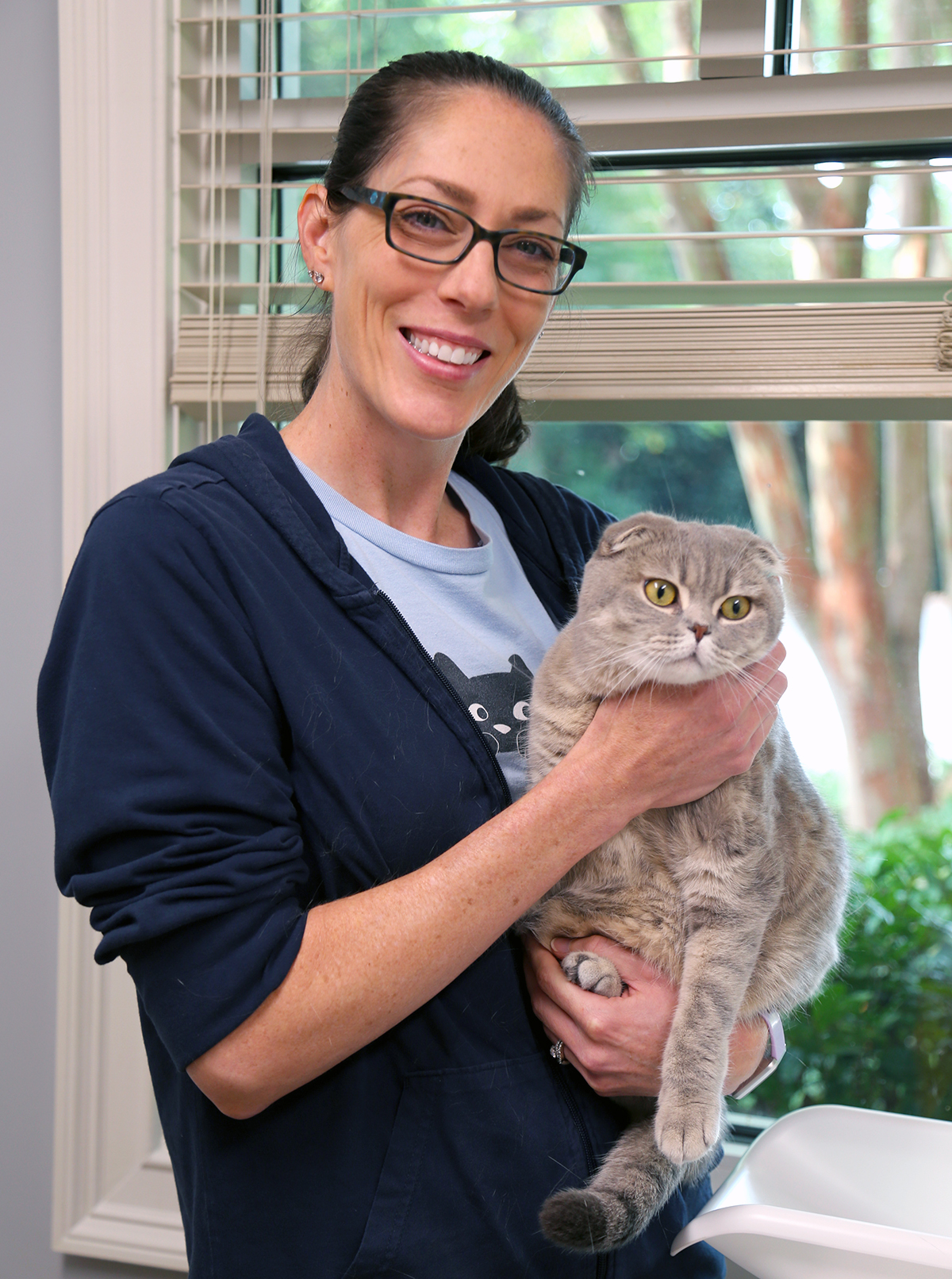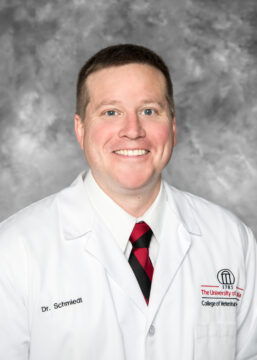Dr. Alison Bradbury (DVM, 2012) was destined for her role as The Cat Doctor, even though she hails from a family of large animal veterinarians practicing in South Georgia. Her grandfather earned his Doctor of Veterinary Medicine from Auburn University before the University of Georgia College of Veterinary Medicine was organized. Her uncle, Dr. Robert McDaniel, is a fellow UGA alum and member of the DVM class of 1979.
Bradbury was raised in Gwinnett County and eventually put her own urban spin on the family business. In fact, her path to her practice specializing in feline medicine was entirely of her own making. She completed her undergraduate work in biology at the University of Georgia in 2004.
“I knew that I wanted to be a vet, but I had to go out to the real world for a moment, take a breather, make some money. And it actually ended up being really, really good for me, because what I ended up doing was working with my family for a little bit, realizing that maybe large animals were not for me,” Bradbury says.
She moved back north and did a stint at Zoo Atlanta, then saw a classified ad in the newspaper seeking an assistant for The Cat Doctor in Sandy Springs. “And I went, what? There’s a cat doctor?” She was hired and promoted to veterinary technician after testing for her license and later enrolled at the CVM. She returned to the practice after graduation and succeeded her former boss as The Cat Doctor upon his retirement.


